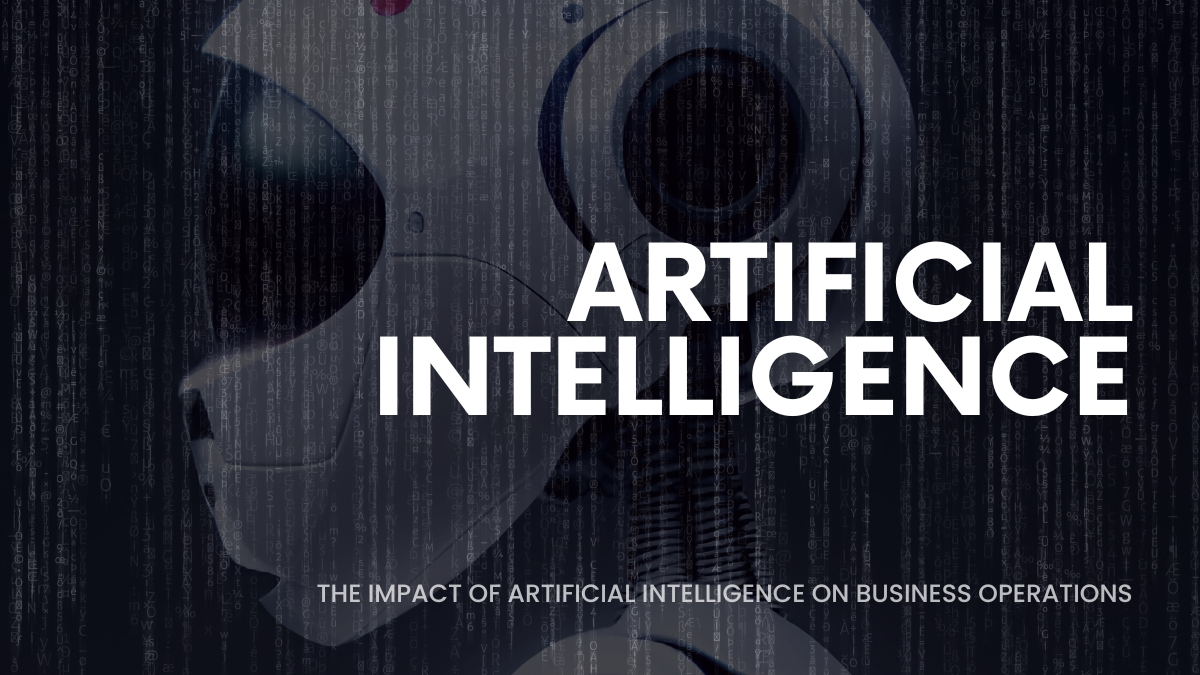
Artificial intelligence (AI) has revolutionized the way businesses operate and has the potential to change the landscape of the business world. AI technology has proven to be a game-changer for businesses, with its ability to automate routine tasks, improve decision-making processes, and increase overall efficiency. In this blog post, we will explore the impact of AI on business operations and how organizations can leverage this technology to gain a competitive edge.
1. Automation of Routine Tasks
Automation of routine tasks is one of the most significant ways in which artificial intelligence (AI) is transforming business operations. AI technology can automate mundane day-to-day tasks, freeing up valuable time and resources for businesses to focus on higher-level activities. This automation not only increases efficiency but also reduces errors and costs associated with manual labor.
Using AI for routine tasks helps to improve overall workflow management by making complex processes more organized and efficient. This can help businesses improve customer service by enabling employees to respond quickly to inquiries or resolve technical issues faster than ever before. Additionally, automating routine tasks eliminates the need for costly manual labor and ensures that critical tasks are completed accurately every time so that a high level of quality is maintained across all departments within the organization.
2. Improved Decision-Making Processes
The use of Artificial Intelligence (AI) technology in business operations is quickly taking over as a way to improve decision-making processes. AI algorithms can analyze large amounts of data and find meaningful patterns that help businesses make decisions more effectively. AI can also reduce the time it takes for organizations to make decisions, allowing them to be more agile and competitive in their markets.
Not only does AI help with better decision-making, but it can also provide valuable insights into customer behavior, helping organizations customize their products and services toward those needs. By using machine learning techniques, these algorithms can be trained to recognize trends in customer data and anticipate future demands. This will give companies an advantage when competing against other firms in the same market space.
In addition, AI helps by automating certain tasks such as marketing campaigns or sales forecasts.
3. Increased Efficiency
AI technology is revolutionizing the way businesses operate, and one of its key benefits is increased efficiency. AI can process large amounts of data much faster than humans, making it a valuable asset for businesses looking to become more productive, cost-effective, and competitive. With AI taking on mundane and time-consuming tasks such as data analysis, businesses can focus their efforts on more important or creative activities that are better suited to human expertise.
Using AI in business operations also allows companies to automate processes that would otherwise require manual labor, which not only saves time but also money in terms of labor costs. Additionally, AI technology is constantly evolving and improving in sophistication with advances in machine learning algorithms; this means that businesses can keep up with the latest trends and capitalize on them with reduced risk factors due to the accuracy provided by AI systems.
4. Enhanced Customer Experience
The integration of Artificial Intelligence (AI) into business operations has revolutionized the way companies interact with their customers. AI-powered chatbots and virtual assistants enable businesses to provide a more personalized and efficient customer service experience than ever before. AI enables businesses to respond quickly to customer inquiries and anticipate customer needs, resulting in improved customer satisfaction levels.
Moreover, AI can be used to analyze large amounts of data collected from customers to gain insights into their preferences and behaviors. This valuable information helps companies tailor their products or services according to the individual needs of each customer, resulting in better user experiences that can lead to higher sales figures. Additionally, AI-based research tools provide an unprecedented level of accuracy in collecting market intelligence and uncovering new growth opportunities.
5. Personalization and Segmentation
The use of artificial intelligence (AI) technology in business operations is becoming increasingly popular, as AI can help to optimize processes and maximize profits. AI can also be used to personalize and segment customers based on their preferences and behaviors. By analyzing customer data, companies can determine which segments of the market have a greater likelihood of purchasing certain products or services. This helps businesses target their marketing efforts more efficiently, leading to increased sales and customer loyalty.
Personalization and segmentation powered by AI solutions allow companies to customize offers for individual customers based on specific criteria such as location, product preference, or purchase history. This allows businesses to create tailored experiences that increase the chances of conversion from potential leads into paying customers. Additionally, it opens up opportunities for cross-selling and upselling opportunities within existing customer bases as well as acquiring new customers through targeted campaigns.
Conclusion
The impact of AI on business operations has been significant, with the technology delivering automation of routine tasks, improved decision-making processes, increased efficiency, enhanced customer experience, and personalization and segmentation. Organizations that adopt AI technology will be better positioned to compete in the marketplace and gain a competitive edge.




